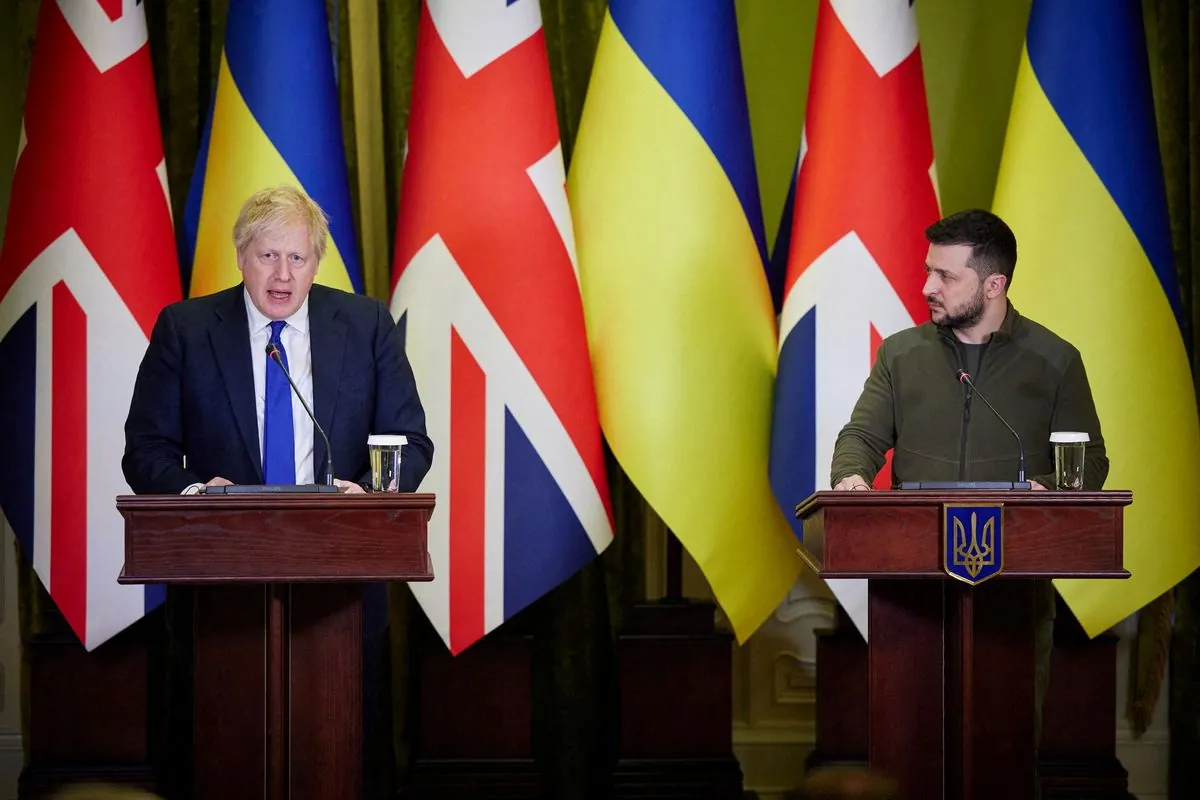Ukraine's Fight: A Historical Parallel and Call for Unwavering Support
Former MP draws parallels between Ukraine conflict and past wars, urging continued support. He warns against appeasement, emphasizing the global importance of Ukraine's resistance against Russian aggression.

In the halls of British Parliament, echoes of past conflicts resonate with the current crisis in Ukraine. As a former member of the House of Commons, elected 37 years ago, I witnessed the transition from a generation shaped by World War II to the challenges we face today.
Denis Healey, a veteran of the Anzio landing and former Chancellor, exemplified the post-war leadership that established the foundations of our current international order. The Bretton Woods institutions, created in the aftermath of WWII, stand as a testament to their foresight.

The fall of the Berlin Wall in 1989 marked a pivotal moment, signaling the end of the Cold War and the dissolution of the Soviet Union two years later. Many of us hoped this would usher in an era of peace in Europe. However, recent events have shattered this optimism.
Vladimir Putin's illegal invasion of Ukraine, now in its third year, has brought atrocities not seen on European soil in decades. The international community's response, particularly that of the UK under the leadership of Ben Wallace, Boris Johnson, and Rishi Sunak, has been commendable. Yet, echoes of appeasement reminiscent of the 1938 Munich Agreement are concerning.
"We have been here before. At the Munich conference in 1938, the British and French leaders who agreed to hand Hitler part of Czechoslovakia believed they were securing peace. But the most catastrophic conflict of the twentieth century followed."
The stakes in Ukraine extend beyond its borders. The principles of sovereignty and territorial integrity, enshrined in the UN Charter, are under threat. If Russia succeeds, it could embolden further aggression, potentially threatening NATO members like the Baltic states.
Ukraine's resistance has been remarkable, akin to David facing Goliath. Their counter-offensive has exposed vulnerabilities in Russia's military machine that few anticipated at the war's outset. However, Ukraine's success depends on continued and increased support from its allies.
We must leverage our diplomatic capabilities to rally global support for Ukraine. This conflict is not just about one nation's freedom; it's about preserving the international rules-based system that has underpinned global security for decades.
As Aneurin Bevan, founder of the NHS, wisely noted, "You don't have to gaze into a crystal ball when you can read an open book." History has provided us with clear lessons. We must heed them and stand resolutely against aggression, ensuring that Ukraine has the means to defend its sovereignty and, by extension, the principles we all hold dear.



































